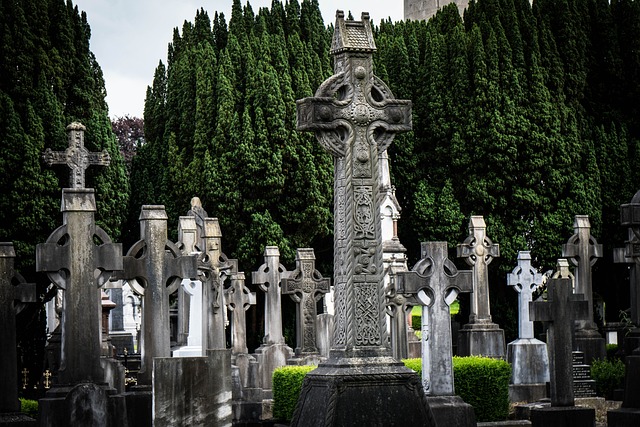Low-income families often struggle to afford medical expenses and funeral assistance, adding significant stress during times of illness and bereavement. Funeral Assistance for Low Income Families initiatives provide much-needed relief by offering financial aid for dignified funerals, easing financial strain, and fostering community support. These programs, both government-led and non-profit-driven, ensure accessibility to essential services, reduce financial barriers to recovery, promote community solidarity, and ultimately contribute to a healthier society. By leveraging strong community networks, these organizations directly assist vulnerable families in managing illness-related expenses and end-of-life arrangements.
For many low-income families, managing medical expenses during an illness can be overwhelming. Understanding this challenge is crucial in providing accessible healthcare. This article explores three powerful resources: funeral assistance programs tailored for affordability, government subsidies for illness sufferers, and non-profit organizations offering financial aid. Additionally, it highlights local community resources that serve as support systems, ensuring better access to care, especially for those facing economic burdens. Discover these options to ease the financial strain during difficult times.
- Understanding the Challenge: Low-Income Families and Medical Expenses
- Funeral Assistance Programs: A Lifeline for Affordability
- Government Support and Subsidies for Illness Sufferers
- Non-Profit Organizations: A Network of Help for Financial Burdens
- Community Resources: Local Support Systems for Better Access to Care
Understanding the Challenge: Low-Income Families and Medical Expenses

Low-income families often face a significant challenge when it comes to managing medical expenses, especially during times of illness. The financial burden can be overwhelming, adding stress and worry on top of already difficult situations. Many families struggle to afford basic healthcare, medications, and even funeral assistance for loved ones. This is where support systems and initiatives come into play, offering a helping hand to alleviate some of the financial strain.
Funeral Assistance for Low-Income Families is one such program designed to provide relief during bereavement. These initiatives recognize the importance of dignified funerals, ensuring that financial constraints do not prevent families from honoring their loved ones’ memories. By offering financial aid, these programs enable low-income families to access necessary funeral services and create meaningful tributes, fostering a sense of support and compassion within the community.
Funeral Assistance Programs: A Lifeline for Affordability

For many low-income families facing illness, the cost of funeral arrangements can be an additional financial burden, adding to their already challenging circumstances. This is where Funeral Assistance Programs step in as a lifeline, offering much-needed support during an emotionally and financially stressful time. These programs are designed to help alleviate the financial strain by providing grants or subsidies for funeral expenses, ensuring that families can say goodbye to their loved ones without the added worry of mounting bills.
Funeral Assistance for Low Income Families is not just about monetary aid; it’s about ensuring dignity and respect during a difficult period. By accessing these programs, families can focus on grieving and healing rather than being burdened by financial concerns. This support is crucial in fostering a sense of community and compassion, allowing folks to navigate this life transition with a little less stress and a lot more peace of mind.
Government Support and Subsidies for Illness Sufferers

Many countries offer government support and subsidies to assist illness sufferers, easing the financial burden of healthcare costs. This aid comes in various forms, including direct monetary assistance for treatment, medication, and rehabilitation. For instance, some governments provide funeral assistance for low-income families, ensuring that financial constraints don’t prevent individuals from receiving proper end-of-life care.
These support systems are designed to promote accessibility to healthcare services, enabling patients to focus on their recovery without the added worry of monetary strain. They also encourage a sense of community and solidarity among citizens, as everyone benefits from a healthier and more supportive society.
Non-Profit Organizations: A Network of Help for Financial Burdens

Non-profit organizations play a crucial role in offering support and assistance to individuals facing financial hardships, especially when it comes to illness-related expenses. For low-income families grappling with medical bills, these organizations provide a network of help that can ease the burden. Many non-profits focus on funeral assistance for low-income families, ensuring that financial constraints don’t add to the emotional stress during an already challenging time. They offer grants and subsidies to cover funeral costs, which can be a significant relief for those struggling with the high expenses associated with end-of-life arrangements.
These organizations often have robust networks and connections within communities, allowing them to connect families with various resources. By partnering with local businesses, cemeteries, and crematoriums, they can negotiate rates and offer discounted services. This collaborative approach ensures that financial assistance reaches those who need it most, making a significant impact on the lives of low-income families during their time of need.
Community Resources: Local Support Systems for Better Access to Care

For many illness sufferers, especially those from low-income families, accessing quality care can be a significant challenge. However, community resources offer a lifeline, providing local support systems that enhance access to essential services. Organizations and initiatives focused on community health often provide a range of programs tailored to meet specific needs, including financial assistance for medical treatments and funeral services. This aid is particularly valuable in ensuring that economic constraints do not become a barrier to necessary care or a reason to forgo treatment altogether.
One notable area of support is funeral assistance for low-income families, where community resources step in to cover funeral expenses, providing peace of mind during an otherwise stressful time. These services are designed to honor the deceased while alleviating the financial burden on families grappling with illness and loss. By leveraging local support networks, individuals and families can navigate their healthcare journey with greater ease, knowing that there is a safety net in place to assist them when it matters most.
For those facing illness and financial strain, exploring various support systems is essential. From government subsidies to non-profit organizations and community resources, there are numerous options available to ease the burden of medical expenses, especially for low-income families. Understanding these resources can be a game-changer, providing much-needed relief during challenging times. In light of this, funeral assistance programs specifically tailored for low-income families can offer significant financial aid, ensuring access to proper care and support when it matters most.







